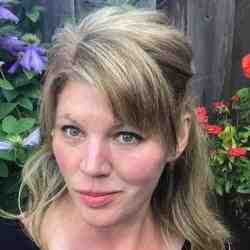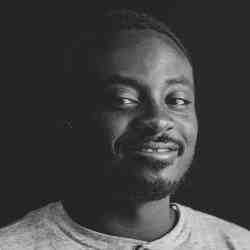Introducción
Will is cultivating a continuous flow of change leaders from racialized communities, incubating grassroots social innovations and building solidarity networks of support. His innovative strategy for equity and inclusion co-creates a critical mass of coordinated actors to break down systems of oppression in a comprehensive and concentrated manner.
La idea nueva
Will is rallying people through a multifaceted ecosystem approach to build solidarity networks of changemakers from racialized communities to tackle the interlocked and reinforcing components of racist systems at once. Will’s approach is akin to a full-court press - a basketball strategy where the defense applies pressure to the offense for the entire length of the court - to set up the collective capacity to build the equity necessary for full inclusion. Will’s model engages those who traditionally face marginalization and those who perpetuate it in new social infrastructures and entities to co-create a critical mass of coordinated actors breaking down systems of oppression.
Untangling systemic racism requires a concentrated and comprehensive strategy to address the multiple layers of oppression at once. This is due to a myriad of issues interwoven with competing histories, assumptions, cultural norms, psychology, and socioeconomics which have become infused throughout the construction of all levels of society. Will starts animating his idea by spotting young potential leaders in the community through social forums. In these public forums, he supports young people who face marginalization and have internalized the failures of their broken social systems as external circumstances that can be overcome in solidarity. This takes the weight of broken systems off of themselves, supports critical thinking, and allows for new agency to emerge as young participants start exploring their role as changemakers. Will’s model supplies a continuous flow of changemakers who are supported to step into new leadership by designing and running new social initiatives that are incubated in the community.
On the demand side, Will’s model is actively building more just public institutions by creating the accountability frameworks for meaningful diversity and inclusion. Through citizen roundtables and social forums, Will’s model is activating public dialogue around systemic discrimination and creating new task forces to carve the pathways for a more inclusive and equitable society. He has integrated new awareness and lexicon for systemic racism within the provincial and municipal governments and creates accountability frameworks to advance true equity in Quebec. By sharing stories on the systemic roots of racism, Will shapes a new narrative to help youth, communities and institutions to envision and co-create a more inclusive society. The impact of his social innovation and its principles extend beyond Black francophone communities that face marginalization; it is reshaping cultural norms for inclusivity and cultivating a new generation of young leaders organized in solidarity networks to work for the good of all.
El problema
The specific history of Quebec within Canada is layered onto the backdrop of colonial history. According to a study published in 2010 by Dr. Potvin, living in Quebec as a person outside the dominant white, francophone culture is to live as a minority within a minority. That is, while white, francophone culture is dominant and privileged within Quebec, francophone Quebecers exist as a minority within the anglophone Canadian context and experience discrimination, misunderstanding and prejudice based on language and culture. As a result, it can be particularly difficult to discuss issues of discrimination and privilege with white francophones, who have been on the receiving end of inequalities in some aspect of their historical experience. As such, white Quebecers hold a majority of power over visible minorities and Indigenous peoples in Quebec. There is also an increased polarization occurring within the political space around systemic racism in Quebec, which is often conflated with individual racism, with the misconception that any denunciation of systemic racism means a personal attack questioning the values of a given individual. However, systemic racism does not mean that all individuals participating in a system are racist, but that the system (social, economic, criminal) to which they belong is constituted in a way that it inherently produces racial discrimination.
As a result of systemic inequalities, marginalized and racialized populations do not have the same opportunities to develop their full potential as people from the dominant group. This is reinforced by an internal tension within racialized individuals between the combination of structural barriers and the internalization of social perceptions as to what their potential is. Young people who grow up in marginalized communities are often culturized to see themselves as engineered for failure therefore limiting their potential for success. This is related to dynamics of internalized racism and the theory of stereotype threat which states that if negative stereotypes are present regarding a specific group, group members are likely to become anxious about their performance, which may hinder their ability to perform to their full potential. Repeated experiences of stereotype threat can lead to a vicious circle of diminished confidence, poor performance, and loss of interest in the relevant area of achievement. It has been proven to be a contributing factor to long-standing racial and gender gaps in academic performance. In a survey conducted in 2019 at Will’s old high school in Montreal-North – which has one of the highest drop-out rates in Quebec - the vast majority of students responded with three main issues: they experience a lack of self-esteem, they identified that there was a lack of access to culture and arts, and they could not imagine what they would become in the future.
As a result of systemic racism, racialized people are inequitably represented in these statistics in Quebec:
In 2019 Black people in Montreal are five times more likely to be stopped by the police than white people; and the unemployment rate for Black and Arabs professionals in the province is twice that of the White population. A study by the Quebec Commission on Human Rights and Youth Rights shows that, with equal qualifications and skills, candidates whose names sound similar to Quebecers are 60% more likely to be invited to an interview than those who have an African-sounding, Arabic or Latin-American name. In total, only 5% of Quebec public service employees are visible minorities, while they represent 13% of Quebec the population. While they represent 30% of the Montreal population, visible minorities represent less than 4% of elected officials at the city level. North-Montreal, a neighbourhood where 43% of the population are visible minorities, has the lowest average income in all Montreal. The North-Montreal population also suffers from territorial stigma perpetuated by francophone media’s representation of the neighbourhood, only covering stories there related to crime or violence, and rarely including perspectives from racialized individuals in their coverage.
La estrategia
Born and raised in North-Montreal of a Black Haitian descent father and a white Quebecer mother, Will has faced first-hand the effects of systemic racism and the challenging living conditions of an impoverished neighbourhood. The tipping point for Will to take action against racial and social inequalities came on August 8, 2008, when Fredy Villanueva, a young Latino man who was playing the dice in a park in Montreal-North, was shot dead by a police officer. Fredy reminded Will not only that it could have been him, or a friend or a sibling, it also shone a light on the injustices Will had witnessed and faced growing up. Fed up of waiting for things to get better, in 2008 Will started Montreal-North Republik, a social forum to channel the energy of the residents into a collective movement allowing them to talk about their realities, denounce the challenging living conditions of the neighbourhood and issues around police brutality. To activate a dialogue within the community and encourage them to problem solve solutions, Will created Hoodstock in 2009. They first organized yearly social forums, provided training for people to know about their rights when facing a police officer, legal aid services, as well as a platform for hip hop artists from the community to perform their art.
Seeing that an unfair game was being played in Quebec’s society which was excluding racialized groups and limiting their potential to live their best life, Will decided he needed to build an alternative game. In order to do so, he had to find the right teammates and create other teams to join the league to fight against systemic racism. Because he grew tired of watching young people with great potential fail because of the environment they grew up in did not allow them to fully express that potential, Will decided to focus his leadership development efforts on youth from Montreal-North. To do so, Will acts like a talent recruiter. Through Hoodstock, potential young leaders from the community are spotted from age 15 to 30. Will states that the first step to activate them is to spend time to get to know them and understand what drives them. He then creates the internal conditions to activate changemaker identities within them. Through collective working sessions, Will deploys critical thinking and system thinking to shift mindsets and deconstruct internalized stereotypes and unconscious biases while also holding the space to allow self-expression on feelings of exclusion, lack of self-worth and injustice. This transformative experience allows the youth to separate themselves from the shame and self-limitation that they believe is a personal deficit and identify it is a systemic deficit instead. In 2018, Will created the Hoodstock Youth Leadership Committee to act as a solidarity network enabling youth leadership to emerge from the community. The emotional experience of collective belonging paired with tools to understand the rules governing systems enables young participants to realize that the issues that they’ve experienced personally are also affecting others in their community. This allows them to move from the individual to the collective and step into their roles for change to build alternatives.
This continuous pipeline of leadership is being fed by Will and community members who recommend youth to Hoodstock which operates as an incubator for grassroots social innovations – the first and only one in North-Montreal. Depending on the cause that matters the most to them, young leaders develop their own initiative responding to specific needs they’ve identified in their community or join the leadership team on already existing initiatives. Between 2016 and 2020, Hoodstock organized four public consultations in North-Montreal, from which eight social innovation projects have emerged and are now directly being led by members of the Youth Leadership Committee. These projects are building more inclusive and holistic healthcare options for racialized communities; new social entrepreneurship capacity; access to new, diverse and culturally relevant arts and literature; new political engagement opportunities; and new media platform voicing Black francophone narratives and culture. For example, a young woman from the youth committee is leading Hoodstock’s alternative and restorative justice initiative. This initiative inspired by the Maniotenam Indigenous community in Northern Quebec, is the first of its kind in the country specifically designed for and by Black communities to reduce their criminalization. This holistic model merges restorative justice and participatory defense approaches to build a culturally relevant preventative model working through the police to intervene before a charge to the Crown Attorney is filed by police officers. Will places the restorative justice initiative at the center of his strategy as he believes it is a way to help catch potential emergent leaders from falling into the criminal justice system; a zone that is very difficult to recuperate from. Will’s goal is to first build the collective capacity in North-Montreal to develop the restorative justice initiative before replicating the model across Canada.
To make sure leadership is also being exercised collectively, Will and his team have created various advisory committees to inform the development of the restorative justice project. In 2020, a young member from the Hoodstock Youth Leadership Committee is opening ECHO (Espace Coworking Hoodstock), the first co-working space dedicated to grassroots social innovations incubation and arts in North-Montreal. Coupled with the co-creation of a social entrepreneurship curriculum led by another young member of Hoodstock with HEC Montreal - one of the main business schools in Quebec and an Ashoka Changemaker campus – ECHO will promote a culture of social innovation and entrepreneurship in the community, further enabling local leadership to emerge. As a result of Will’s leadership, Hoodstock has infused a culture of cooperation and collective action in North-Montreal to tackle the neighbourhood’s challenges. The neighbourhood has traditionally been known for its community organizations competing against each other for funding, and little dialogue between local institutions. He has integrated the practice of public consultations for any project being initiated in North-Montreal while bringing together a broad range of contributors which do not use to work together before – from Integrated Health and Social Services Centre to Secondary and Primary Schools, police station, employment centre, the borough of Montreal-North, universities or local community organizations.
Convinced that leadership development needs to happen early on, Will decided to enter the education system through primary and secondary schools in 2018 with his program S.T.ARTS. Will noticed the interest from kids in his community to new technologies and hip-hop culture, but that programs mixing the two were non-existent in low income neighbourhoods. Therefore, he targets schools in low income areas to address the digital exclusion that young people in Montreal-North may experience while promoting student retention. The way current French curriculum is designed does not give students an opportunity to express themselves or to talk about what’s important to them. Using hip hop culture as an entry point for teaching French or English allows young participants to develop literacy skills while practicing something that they love to express their own experience through creative channels. The S.T.ARTS initiative mixes hip hop culture with coding courses using open source software to allow students to create their own platform to voice their story while preparing them to engage in the workforce of tomorrow. As of 2020, Will is piloting S.T.ARTS in both secondary schools of Montreal-North with the objective of integrating it in Quebec’s school system curriculum.
Through Hoodstock and its initiatives, Will is unlocking new power and enhancing social and political empowerment so that young racialized changemakers can create alternate systems that serve a more inclusive representation of society. To create effective systemic change, Will realized he needed to navigate between systems to build the supply and demand for a workforce by creating the conditions for more diversity within existing institutions to reflect demographics in inclusive and equitable ways.
On a macro-level, Will is creating new task forces and is actively building a public dialogue on potential pathways to equity in Quebec. Central to this is Will’s effort to introduce a new awareness and lexicon for systemic racism in Quebec society. In 2016, he co-founded the Consultation Table on Systemic Racism, the first and only consultation table in Quebec gathering over 75 multi-faith and multi-ethnic actors to tackle issues around systemic racism. In doing so, he has introduced the expression systemic racism in the public space and is activating a public dialogue to surface stories from visible minorities and influence mindset shifts toward a more inclusive society. The Table led to the first public consultation on systemic racism in the city of Montreal in 2019 which is the first step to measure the magnitude of systemic racism at the city level as a baseline for improvement to hold the city accountable. In 2020, Will aims to leverage the City of Montreal’s consultation on systemic racism to feed stories and data at the city level to encourage the provincial government to run one too, with the objective to start shifting narrative towards equity at the provincial scale. Will’s effort to reframe lexicon around systemic racism is already showing signs of institutionalization. At the municipal level, he serves on the Table on Diversity, Inclusion and Fight Against Discrimination, a working group created in 2018 by the Montreal Mayor to inform policies at the municipal level to foster more diversity and inclusion. As part of the Table, he is developing a plan for the city of Montreal and drafting policies to increase the representation of Montreal's diversity in administrative, political, citizen spaces, in arts and culture, as well as informing policies on police brutality and social/racial profiling. This is setting tangible, measurable and lasting organizational results and goals for the city of Montreal by defining performance indicators and targets to be reached while making the information available to the public.
At the provincial level, Will led to the creation of the first provincial Independent Bureau of Investigation (BEI), so that the police no longer investigate each other in the killing or injuring of a civilian by police officers. In comparison, such instance exists in Ontario since 1990 but was not born in Quebec until 2015. Until the BEI was set up there were no specific requirements prescribed in the Criminal Code or the Police Act as to how independent police investigations on serious incidents involving police officers to be conducted. The BEI is therefore creating accountability frameworks within the police forces to decrease police brutality. Within its first year of existence, the BEI had handled 49 investigations, which represents the biggest number of investigations involving police officers launched in the past 17 years.
Will’s long-term goal is to see Hoodstock’s model of grassroots incubation of civically empowering social innovations for full inclusion, replicated in different parts of the world in a way that reflects local values and culture to allow young racialized individuals to both have and realize their dreams. For him, success will be achieved when young Black kids from a marginalized neighbourhood have access to the same quality of public education as other kids. It will be when kids from low-income environments have the same sense of self-worth as wealthier kids because the systems they encounter and navigate are welcoming, inclusive and safe. Another goal of Will is to see more political leaders from racialized communities across the country.
La persona
Born of a Black Haitian descent father and a white Quebecer mother, Will grew up in Montreal-North facing first-hand the challenging living conditions of a neighbourhood that has been impoverished. He understood from a young age that systems of oppression and an environment of exclusion had impacts on one’s sense of possibility. In 9th grade, Will won a spelling bee contest, defeating grade 10, 11 and 12 students in his public high school. He ended up competing against the most prestigious private high schools in Montreal and at the provincial level, up to the semi-finals. As a child, he would write stories hoping a teacher would read them and notice his talent, but teachers would only focus on his spelling mistakes. As a result, he didn’t feel like anyone was rooting for him or saw his potential and lacked role models that looked like him to inspire him. Will ended up failing his French courses in grade 12 and did not receive his high school diploma. Decades later, Will continues to see that his high school is still setting up students for failure, ultimately impeding on students' abilities to establish goals and have the tools required to accomplish them.
In his early twenties, he became a police officer for the Royal Canadian Mounted Police and was sent into a remote Indigenous community in Northern Manitoba where he witnessed first-hand the legacy of colonization and the results of systemic racism at play in law enforcement. He was very active in the community, particularly as a basketball coach and he led his team to the final at the provincial level.
Will is an activator – of people, initiatives, stories and dialogue. In 2003 he went to film school to learn the ways in which he might shine a bright and compassionate light on untold stories. Will’s documentaries, such as, Kenbe la, jusqu’à la victoire or Republik Basket, highlight the humanity in the people whose stories he shares to cultivate empathy across differences and highlight issues that are often invisible to the public eye.
Will’s unique life experience makes him a great community leader and bridge builder between racialized minorities and the dominant groups. Will embodies several points of view at the same time, giving him the unique ability to navigate across multiple worlds (politics, arts, education, law enforcement, community development, social entrepreneurship) to work in the comprehensive manner that he does.




